June 8, 2025 | 04:23 GMT +7
June 8, 2025 | 04:23 GMT +7
Hotline: 0913.378.918
June 8, 2025 | 04:23 GMT +7
Hotline: 0913.378.918
Recently, the National Assembly authorized Resolution No. 98/2023.QH15, dated 24 June 2023, on the pilot of some specialized mechanisms and policies for developing Ho Chi Minh City. Consequently, more opportunities arise for either the development of the metropolis or the cooperation between it and the Mekong Delta region.
On July 21, the People's Committee of Ho Chi Minh City and 13 provinces and districts of the Mekong Delta unveiled the Plan for Implementing the Socioeconomic Development Cooperation Agreement for 2023 and 2024-2025.
According to the plan, Ho Chi Minh City will collaborate with Mekong Delta provinces and cities in 2023 to coordinate a number of regional events, including activities in connecting supply and demand, promoting trade investment, connecting enterprises, and investing in local businesses. Consequently, a conduit is created for the enterprises of the stakeholders to connect and collaborate.
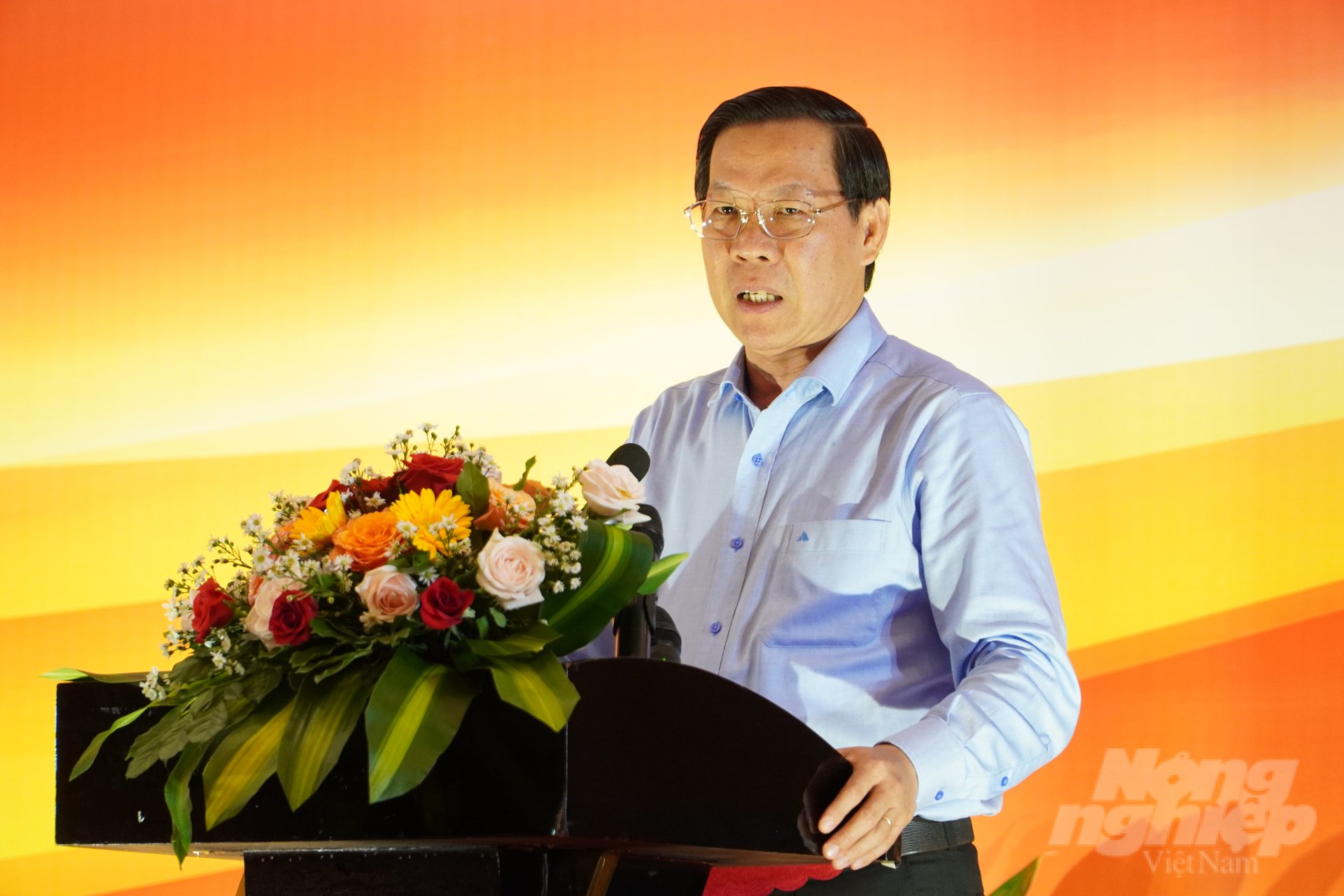
Mr. Phan Van Mai, Chairman of the City People's Committee of Ho Chi Minh City evaluated the cooperation agreement plan between the metropolitan and the provinces and cities in the Mekong Delta would create opportunities to connect supply and demand and promote trade and investment between the parties. Photo: Kim Anh.
Developing transportation infrastructure, promoting tourism, climate change-adaptation cooperation, developing science and technology, digitalization, education, health, and labor training are expected to be the primary areas of focus between 2024 and 2025.
The topic of developing transportation infrastructure has garnered attention for the Ho Chi Minh City – Can Tho railway project and the investment in the Ho Chi Minh City to Mekong Delta coastal road.
Cooperation in the field of climate change adaptation is also centered on the exchange of experiences, and solutions for flood and storm prevention, rescue, and emergency response. Simultaneously, Ho Chi Minh City and Mekong Delta localities will organize international cooperation seminars on new agricultural solutions and new varieties to adapt to climate change.
Additionally, the partnership plan proposes initiatives to protect and develop nature reserves, biodiversity, and significant wetland ecosystems. Since then, a biodiversity corridor has been established between Ca Mau Cape National Park, Dam Doi Bird Sanctuary, Thanh Phu, and Can Gio Biosphere Reserve, creating a research center for biodiversity on Phu Quoc.
Mr. Tran Viet Truong, Chairman of the Can Tho City People's Committee, opined that Ho Chi Minh City is the driving force, the foremost locomotive, and a major and crucial center in the South and the entire nation.
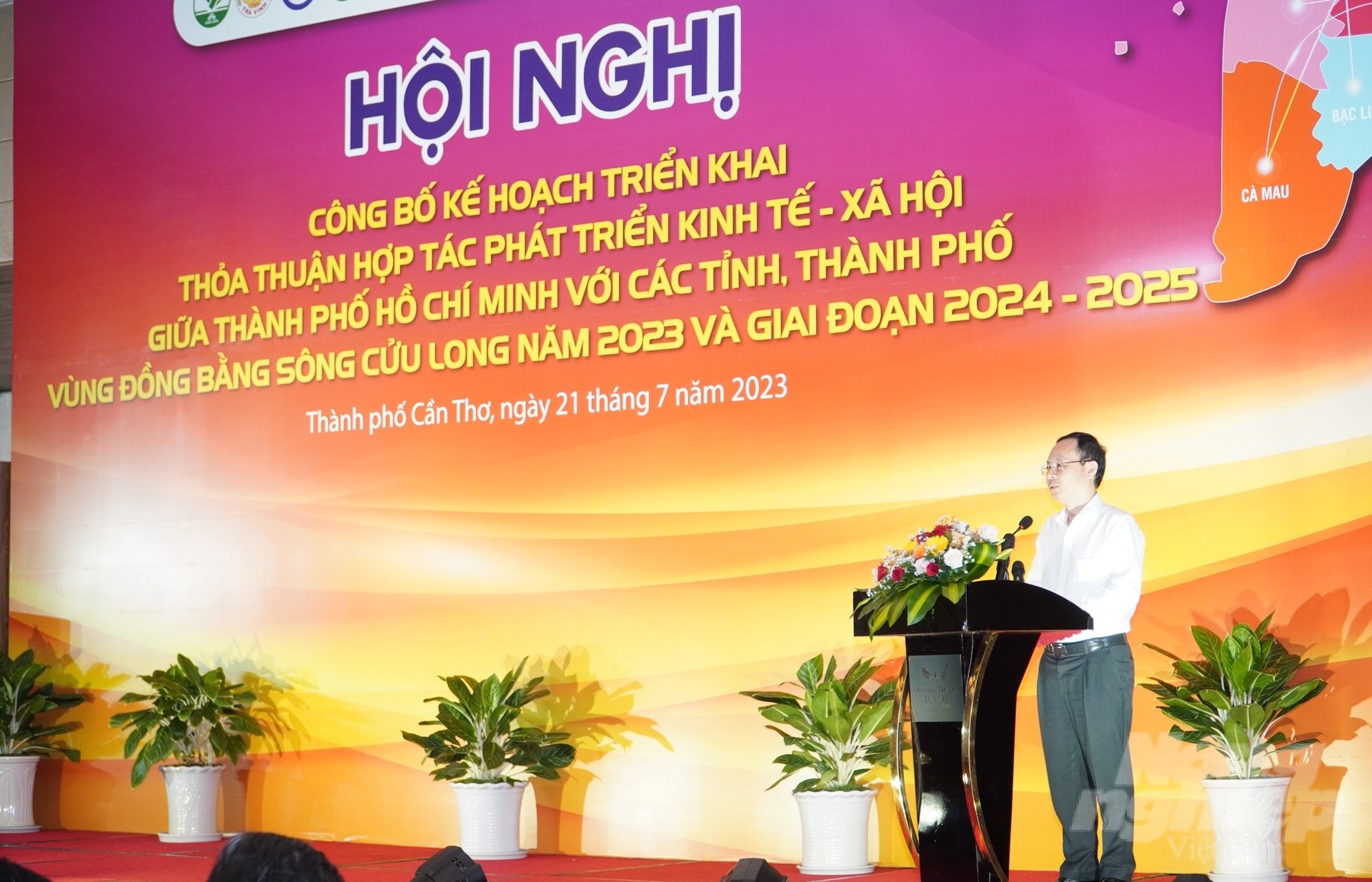
Secretary of Can Tho City Party Committee Nguyen Van Hieu shared that Can Tho city determines that development cooperation with Ho Chi Minh City is the basic and right direction, opening up many cooperation opportunities between businesses, investors, and localities. Photo: Kim Anh.
In order to attain the objectives of Resolution No. 13-NQ/TW, regional linkages play a crucial role. Particularly, Can Tho city and other provinces in the Mekong Delta determine that development cooperation with Ho Chi Minh City is the fundamental and correct direction, thereby creating numerous opportunities for business, investor, and local government cooperation.
In the near future, Mr. Truong hopes to collaborate with the agricultural sector in integrating supply and demand and promoting products. Support and collaborate in the development of the application of science and technology to agricultural production while encouraging producers to form partnerships with businesses in the production and consumption of agricultural goods.
Mr. Phan Van Mai, Chairman of the Ho Chi Minh City People's Committee, stated that the city is implementing a plan to transform the Binh Dien wholesale market into a significant national and international market.
Mr. Mai stated that, in accordance with provincial planning, the establishment of logistics centers in the city of Can Tho and focal centers in a number of Mekong Delta communities is absolutely essential. Together with Binh Dien's wholesale market, these centers will form a network of commercial connections.
Mr. Mai requested that the Department of Industry and Trade of Ho Chi Minh City coordinate with the industry and trade sectors of the Mekong Delta provinces and cities from now until the end of 2023 in order to establish the OCOP product introduction center for typical Mekong Delta products.
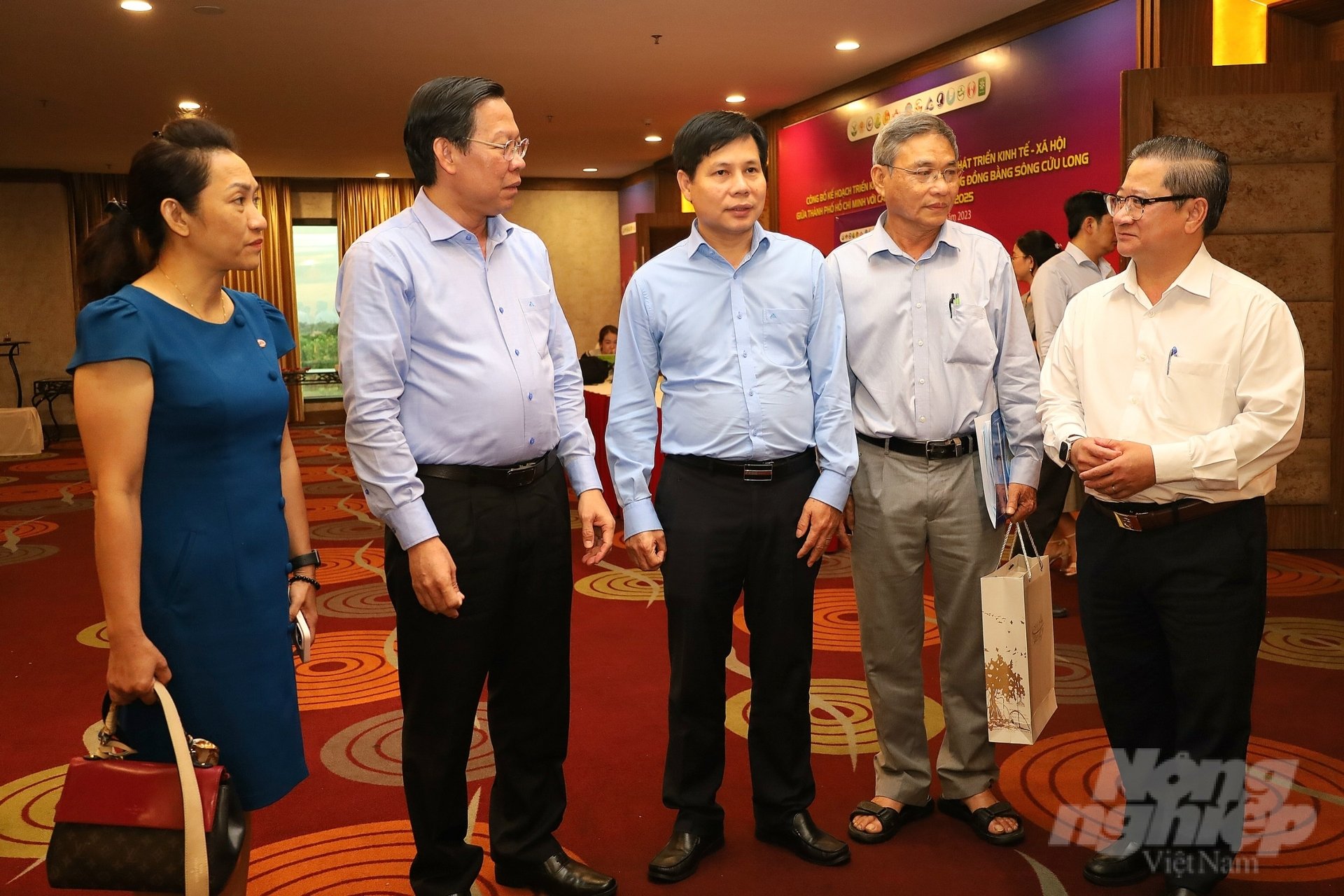
Local leaders discussed on the sidelines of the Conference to announce the implementation plan of the socio-economic development cooperation agreement between Ho Chi Minh City and the provinces and cities in the Mekong Delta in 2023 and the period 2024 - 2025. Photo: Kim Anh.
"Connecting supply and demand, as well as promoting investment, must be a priority if enterprises are to be connected between Ho Chi Minh City and the Mekong Delta region. Ho Chi Minh City's desire to share and foster trade is based on extensive research on agricultural products," said Mr. Mai.
The announcement of the plan for implementing the Socio-Economic Cooperation Agreement between Ho Chi Minh City and the provinces and communities of the Mekong Delta has ushered in a new era for the economies of each locale. In addition, it creates new opportunities for localities in the region to attract initiatives from investors in Ho Chi Minh City.
Translated by Linh Linh
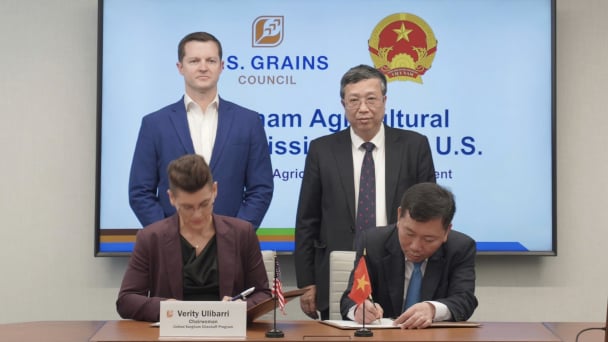
(VAN) The U.S. Grains Council signed a 5-year cooperation agreement with the Partnership for Sustainable Agriculture in Vietnam (PSAV) during MAE's agricultural trade mission.
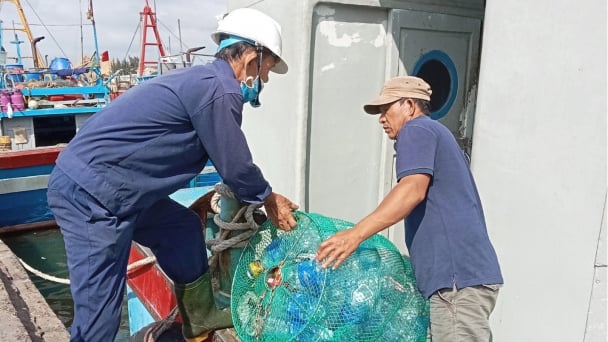
(VAN) Vietnam Agriculture and Nature News interviewed Mr. Vu Thai Truong, Acting Head of Climate Change and Environment at UNDP Vietnam on the occasion of World Environment Day (June 5).
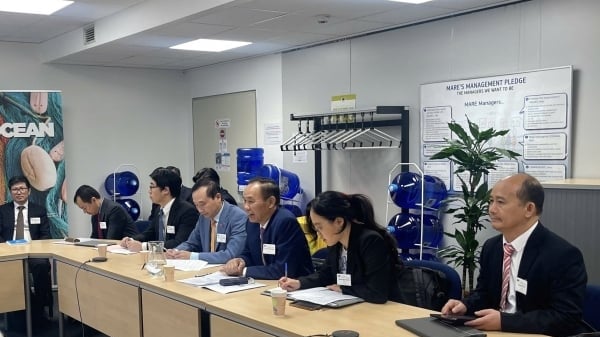
(VAN) On June 5, Deputy Minister of Agriculture and Environment Phung Duc Tien held a working session with the Directorate-General for Maritime Affairs and Fisheries of the European Commission (DG MARE).
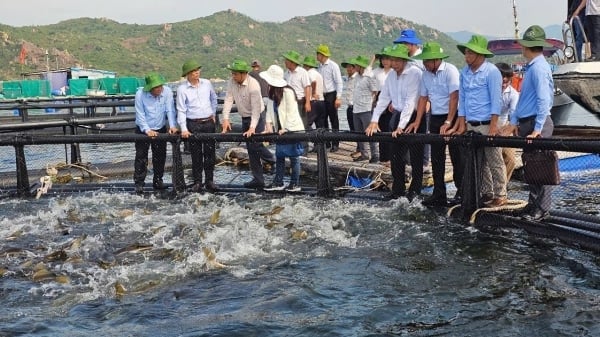
(VAN) According to Prof. Dr. Mai Trong Nhuan, former Director of Vietnam National University, Hanoi, the national ocean spatial plan is devised to guide the ocean economy toward achieving its key objectives.
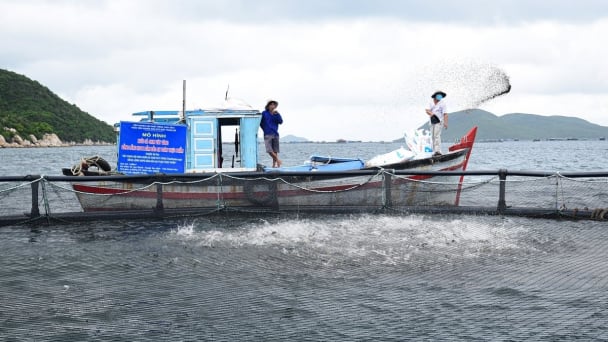
(VAN) Vietnam’s aquatic resources decreased from over 5 million tons in the period 2000-2005 to just over 3.9 million tons in the period 2016-2020.
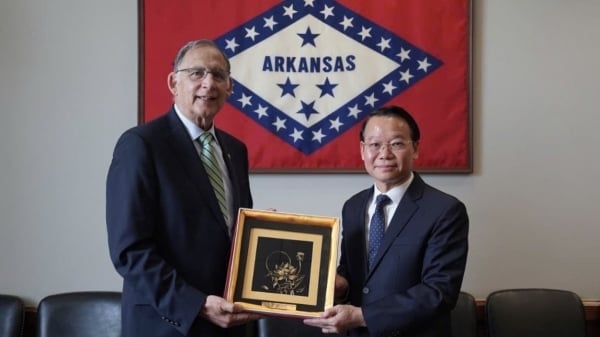
(VAN) The U.S. Congress recognizes Vietnam's role as a reliable and dynamic economic partner in the Asia-Pacific region.
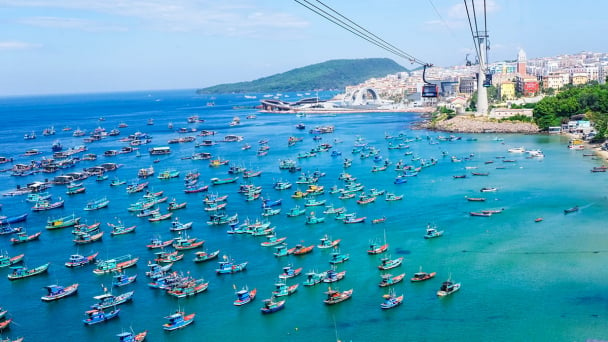
(VAN) Vietnam Sea and Island Week 2025 is a powerful call to action for connecting technology and unlocking policies, aiming towards a modern, sustainable blue ocean.